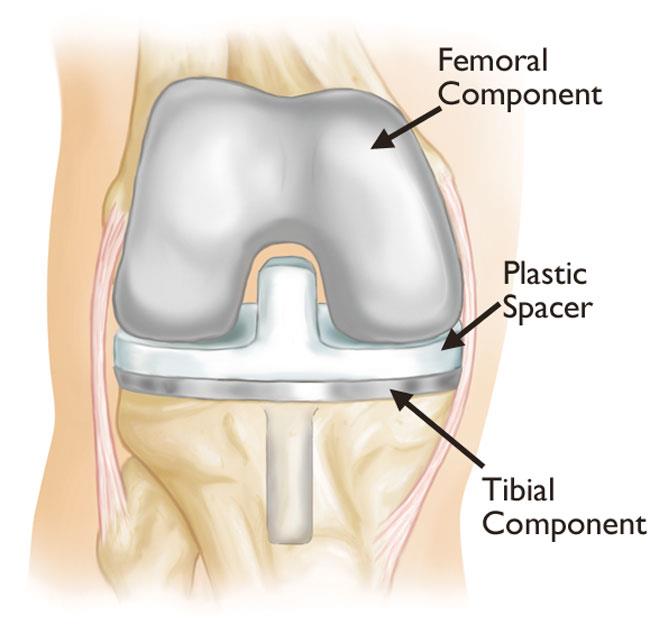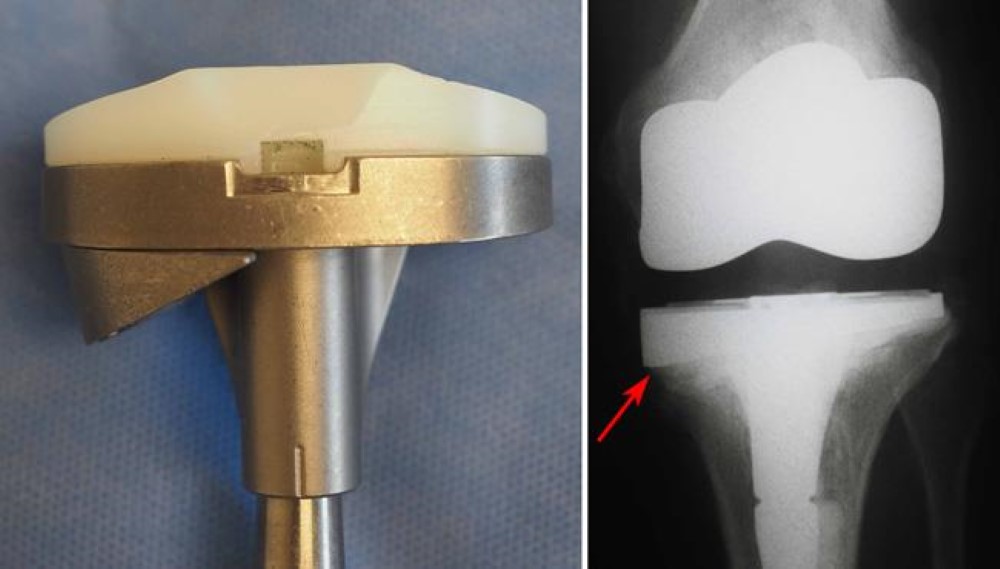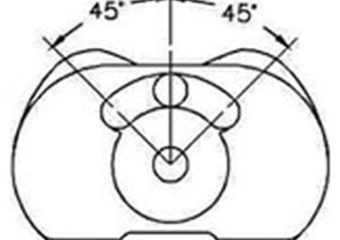Total Knee Replacement-Primary & Revision
Revision Total Knee Replacement
Total knee replacement is one of the most successful procedures in all of medicine. In the vast majority of cases, it enables people to live richer, more active lives free of chronic knee pain. Over time, however, a knee replacement may fail for a variety of reasons. When this occurs, your knee can become painful and swollen. It may also feel stiff or unstable, making it difficult to perform your everyday activities.
Although both procedures have the same goal — to relieve pain and improve function — revision surgery is different than primary total knee replacement. It is a longer, more complex procedure that requires extensive planning, and specialized implants and tools to achieve a good result.
Damage to the bone may make it difficult for the doctor to use standard total knee implants for revision knee replacement. In most cases, he or she will use specialized implants with longer, thicker stems that fit deeper inside the bone for extra support.


Implant Loosening and Wear
In order for a total knee replacement to function properly, an implant must remain firmly attached to the bone. During the initial surgery, the implant was either cemented into the bone or press-fit to allow bone to grow onto the surface of the implant. In either case, the implant was firmly fixed. Over time, however, an implant may loosen from the underlying bone, causing the knee to become painful.
The cause of loosening is not always clear, but high-impact activities, excessive body weight, and wear of the plastic spacer between the two metal components of the implant are all factors that may contribute. Also, patients who are younger when they undergo the initial knee replacement may "outlive" the life expectancy of their artificial knee. For these patients, there is a higher long-term risk that revision surgery will be needed due to loosening or wear.
Infection
Infection is a potential complication in any surgical procedure, including total knee replacement. Infection may occur while you are in the hospital or after you go home. It may even occur years later.
If an artificial joint becomes infected, it may become stiff and painful. The implant may begin to lose its attachment to the bone. Even if the implant remains properly fixed to the bone, pain, swelling, and drainage from the infection usually make revision surgery necessary.
Revision for infection can be done in one of two ways, depending on the type of bacteria, how long the infection has been present, the degree of infection, and patient preferences.




